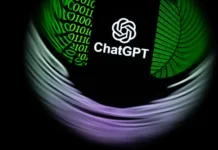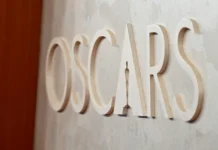AI “Tribute Songs” Are Fooling Millions — and the Artists Never Sang Them
Washington — “Thank you, Adele, it’s such a beautiful song,” reads one YouTube comment under an emotional tribute to slain U.S. activist Charlie Kirk.
But here’s the twist — the voice isn’t Adele’s. It’s AI-generated.
Powerful new artificial intelligence tools can now create songs from just a few words of text, copying the voices of real artists like Adele, Ed Sheeran, or Justin Bieber — often without their knowledge or consent.
And people are falling for it.
Fake Songs, Real Reactions
One tribute video to Charlie Kirk — who was killed last month — features an AI voice singing:
“The angels sing your name. Your story’s written in the stars, a fire that won’t wane.”
The visuals show photos of Kirk alongside emotional music. Viewers in the comments thank Adele for her “beautiful tribute,” unaware that she never recorded it.
Similar fake videos credited to other celebrities have gathered millions of views on YouTube, complete with phony thumbnails of famous singers in tears.
Even though some of these AI voices don’t sound much like the real artists, many people still believe what they’re hearing — another example of how fast AI-generated misinformation is spreading online.
“AI Slop” and Lost Creativity
Media researcher Alex Mahadevan from the Poynter Institute says the problem goes beyond fake songs.
“The internet used to be full of weird, creative people doing things for fun,” he said. “Now it’s filled with AI slop made by people chasing clicks and money.”
He warned that people are turning into passive consumers, not thoughtful, aware internet users.
What YouTube Says
YouTube requires creators to disclose AI-generated or synthetic content, especially if it looks or sounds realistic.
But in most of these tribute videos, that disclosure is buried deep in the description — easy to miss unless you expand the text.
Meanwhile, AI music tools like Suno promise anyone can “make any song you can imagine.” With just a text prompt like “a jazz song about watering plants” or “a pop song about quitting your job,” the tool can create music in seconds.
When AFP tested it with a prompt about a “celebrity activist,” it instantly produced two songs titled “Star Gone Too Soon” and “Echoes of a Flame.”
“Not Quite Human”
AI-generated acts are already finding audiences. One digital “band” called The Velvet Sundown has released albums and attracted more than 200,000 listeners on Spotify. On social media, they describe themselves as “not quite human, not quite machine.”
Who Owns a Voice?
The rise of AI-mimicked voices is sparking a heated debate over copyright and likeness rights.
“Someone’s voice or image should be protected — even after death,” said Mahadevan.
Lucas Hansen from the nonprofit CivAI said full bans are unlikely but expects tighter rules on using and monetizing AI-generated likenesses.
Record labels are already fighting back. In June, the Recording Industry Association of America (RIAA) sued two AI music generators, including Suno, for allegedly stealing copyrighted material.
Last year, more than 200 artists, including Katy Perry and Nicki Minaj, signed an open letter demanding AI companies stop training their tools on existing songs.
“This assault on human creativity must be stopped,” the letter read. “We need to protect artists’ voices and the music ecosystem before it’s too late.”







